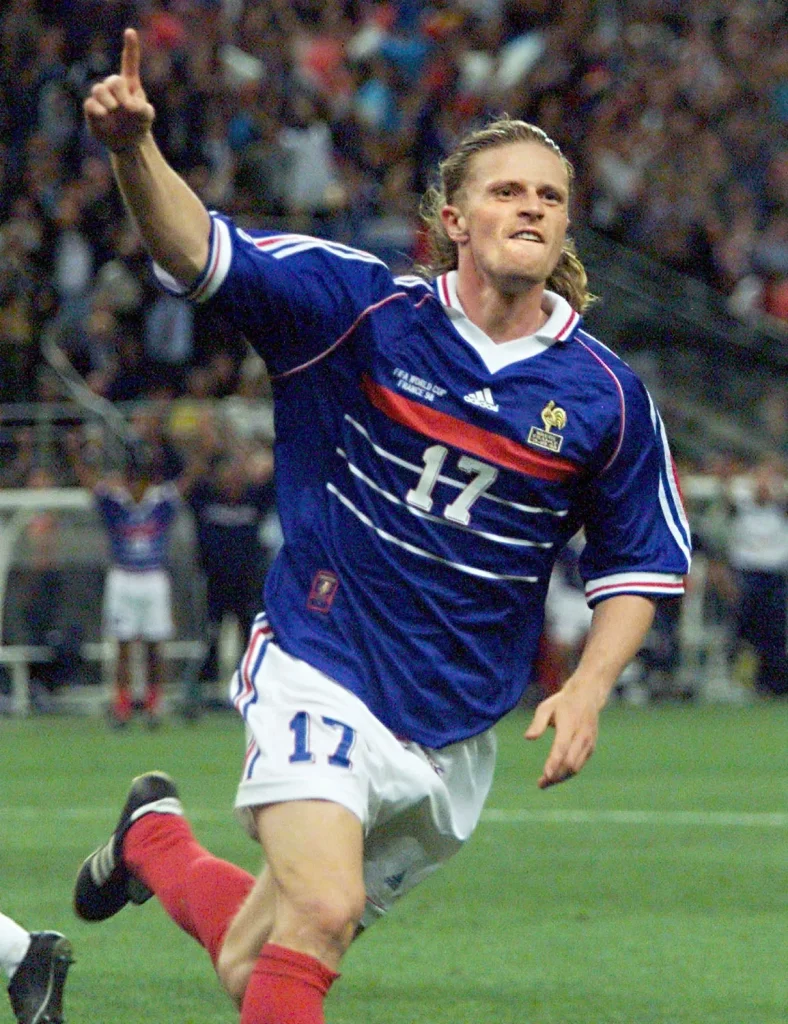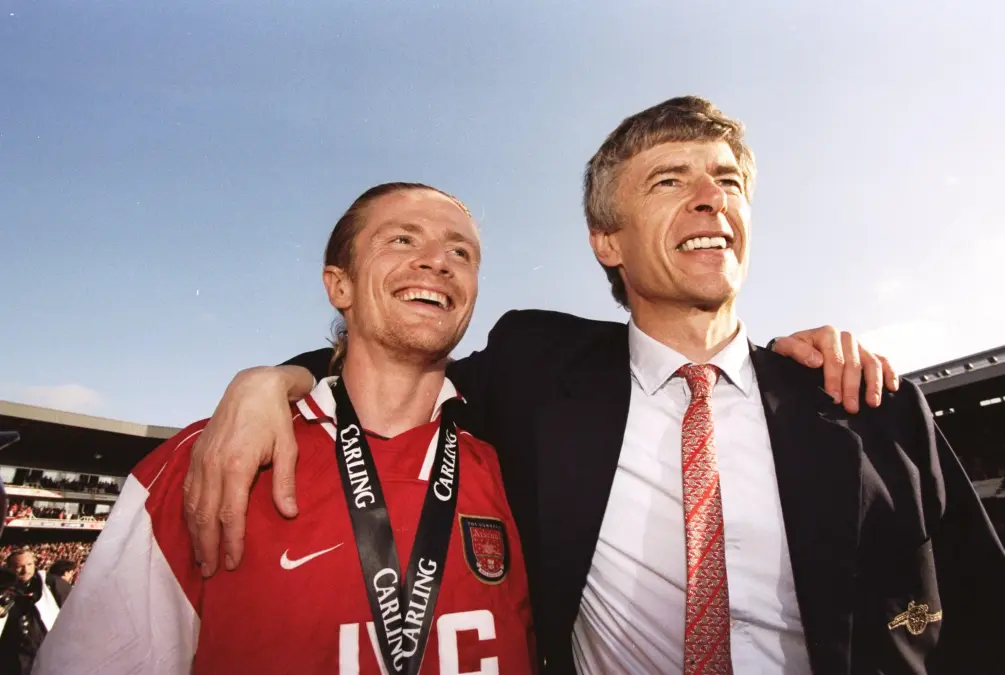In 1997, Tottenham Hotspur believed they were on the verge of signing the talented midfielder Emmanuel Petit.
However, Arsenal had other plans. This period marked the beginning of a golden era for the Gunners under the leadership of Arsene Wenger, who had already made significant additions to the squad, including Dennis Bergkamp and David Platt.
When Arsene Wenger took over as manager in 1996, Arsenal didn’t seem capable of challenging for the league title.
However, Wenger’s vision and strategic signings, including Emmanuel Petit, transformed the team’s prospects. Wenger’s pitch to Petit was straightforward: Do you want to fight relegation with Tottenham, or challenge for Premier League titles with Arsenal? The choice was clear for the French international.
Petit was in London, negotiating with Tottenham chairman Alan Sugar about a potential move from Monaco. Meanwhile, Arsenal, having learned about the meeting, urgently reached out to Petit, urging him not to make any decisions until he heard Wenger’s proposal. Given Wenger’s role in bringing Petit through the ranks at Monaco, Petit felt it was only fair to listen.

After discussing terms with Sugar, Petit requested some time to consider Tottenham’s offer. Spurs even paid for a taxi to take him back to his hotel.
However, Petit cleverly diverted the cab to Wenger’s house, where he met with Arsenal’s vice-chairman, David Dein. A £3.5 million deal was swiftly sealed.
In an interview with Andy Goldstein on talkSPORT Drive, Petit recounted the events: “I had meetings on the same day with Tottenham and Arsenal. When I left the Spurs stadium, they booked me a cab, and I gave the driver the Arsenal address without realizing the cab was pre-paid by Spurs. I told Spurs I needed time to think but knew I had to see Arsenal.”
Upon signing with Arsenal, Petit quickly realized the intensity of the North London rivalry. Speaking in 2018, he reflected, “It’s part of the legend now. David Dein still loves that story – and [more than] 20 years later he’s still telling it!”
Petit’s transfer was a catalyst for Wenger’s revolution at Arsenal, which also saw the arrival of players like Gilles Grimandi and Nicolas Anelka. Petit’s first season with Arsenal was a resounding success.
He formed a formidable midfield partnership with Patrick Vieira, helped Arsenal win the Premier League and FA Cup, and capped off the year by winning the World Cup with France.
Despite his success, Petit faced challenges integrating into the English football culture. Ray Parlour, a former Arsenal teammate, recalled that Petit initially appeared aloof, often ignoring greetings from teammates.
This behavior led to a light-hearted but firm intervention from the squad, who threatened to cut off Petit’s trademark ponytail if he didn’t improve his manners. Fortunately, Petit adapted quickly and became a beloved member of the team.
Petit’s influence extended beyond the pitch. He even made a guest appearance on the ITV drama “The Bill,” showcasing his versatility off the field. During the 1998 World Cup, he credited Zinedine Zidane with inspiring France to victory over Brazil in the final.
Emmanuel Petit’s career highlights the strategic thinking and competitive nature of football transfers. His decision to join Arsenal instead of Tottenham not only altered the trajectory of his career but also played a significant role in Arsenal’s success under Wenger.
Petit continued to contribute to the football world as part of the talkSPORT network, offering insights and commentary on various football events, including Euro 2024.
Petit’s transfer wasn’t the first nor the last to be hijacked. Tottenham had previously snatched Paul Gascoigne from Manchester United, and Chelsea later outmaneuvered Spurs by signing Willian in 2012. These instances underscore the high-stakes nature of football transfers, where strategic decisions can significantly impact a club’s fortunes.
In conclusion, Emmanuel Petit’s transfer saga remains a fascinating chapter in Premier League history, illustrating the intense rivalries and strategic maneuvering that define the world of football transfers.
His decision to join Arsenal instead of Tottenham not only enhanced his career but also contributed to one of the most successful periods in Arsenal’s history.
Read Also: Opinion: Five things we learned from Tottenham’s 4-3 win over Team K-League
Read Also: Tottenham meet attacker with 38Goals/Assists over personal terms as they increase their pursuit
Read Also: Spurs won the lottery with “incredible” star who’s worth more than Chiesa & Gallagher – opinion

